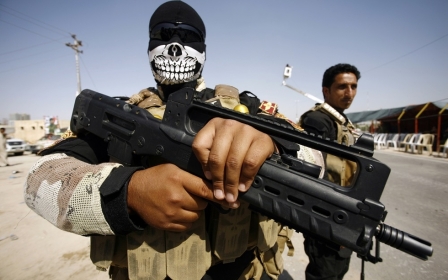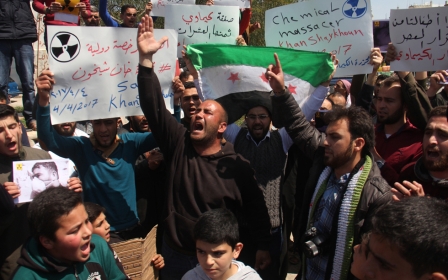Moqtada al-Sadr urges Assad to quit

Iraqi cleric Moqtada al-Sadr on Saturday called on Syrian President Bashar al-Assad to step down, also calling on Washington and Moscow to stop intervening in the conflict.
The Najaf-based cleric condemned the killing of 87 people, including 31 children, in a suspected chemical attack last week in a rebel-held Syrian town that has been widely blamed on Damascus.
"I would consider it fair for President Bashar al-Assad to resign and leave power, allowing the dear people of Syria to avoid the scourge of war and terrorist oppression," he said in a statement.
The United States fired a barrage of 59 cruise missiles at Shayrat airbase in Syria early on Friday to push Damascus, despite its denials of responsibility.
Sadr, who fronted a militia that fought the US occupation of Iraq, also condemned the American missile strike, urging all foreign parties involved in the Syria conflict to pull out.
"I call on all sides to withdraw their military assets from Syria so that the Syrian people take things into their own hands. They are the only ones with the right to decide their fate -- the alternative will turn Syria to rubble," he said.
Several Iraqi Shia militias, some of them directly supported by Iran, are helping Assad's camp in the Syria conflict by sending fighting units across the border.
Sadr, however, is seen as a nationalist. His forces have focused on protecting the holy sites and his drive against corruption and nepotism has drawn support from beyond his traditional base.
During 2005 and 2006 Sadr's self-styled Mahdi army was involved in the sectarian killings which engulfed Baghdad. Hundreds of Sunnis were murdered by militias loyal to various Shia leaders. Hundreds of Shias were murdered in return.
But last month Sadr told Middle East Eye that sectarian militias have no place in Iraq.
Speaking from his home in Najaf he told MEE that he favours urgent dialogue with Iraq's Sunni politicians so as to prevent clashes sectarian clashes once the country no longer has a common enemy.
"I'm afraid that the defeat of Daesh [Islamic State] is only the start of a new phase. My proposal is inspired by fear of sectarian and ethnic conflict after Mosul's liberation," he said.
I would consider it fair for Assad to resign and leave power
- Moqtada al-Sadr
"I want to avoid this. I am very proud of Iraq's diversity but my fear is that we may see a genocide of some ethnic or sectarian groups."
The Iraqi government issued a statement in reaction to the events in Syria reflecting a difficult balancing act between its alliance with the United States and with Iran, a key backer of Assad.
The statement from Baghdad condemned the chemical attack, without naming Assad, calling instead for an international investigation to identify the perpetrator.
It also criticised "the hasty interventions" that followed the chemical attack, in an apparent reference to the US strikes.
Stay informed with MEE's newsletters
Sign up to get the latest alerts, insights and analysis, starting with Turkey Unpacked
Middle East Eye delivers independent and unrivalled coverage and analysis of the Middle East, North Africa and beyond. To learn more about republishing this content and the associated fees, please fill out this form. More about MEE can be found here.




